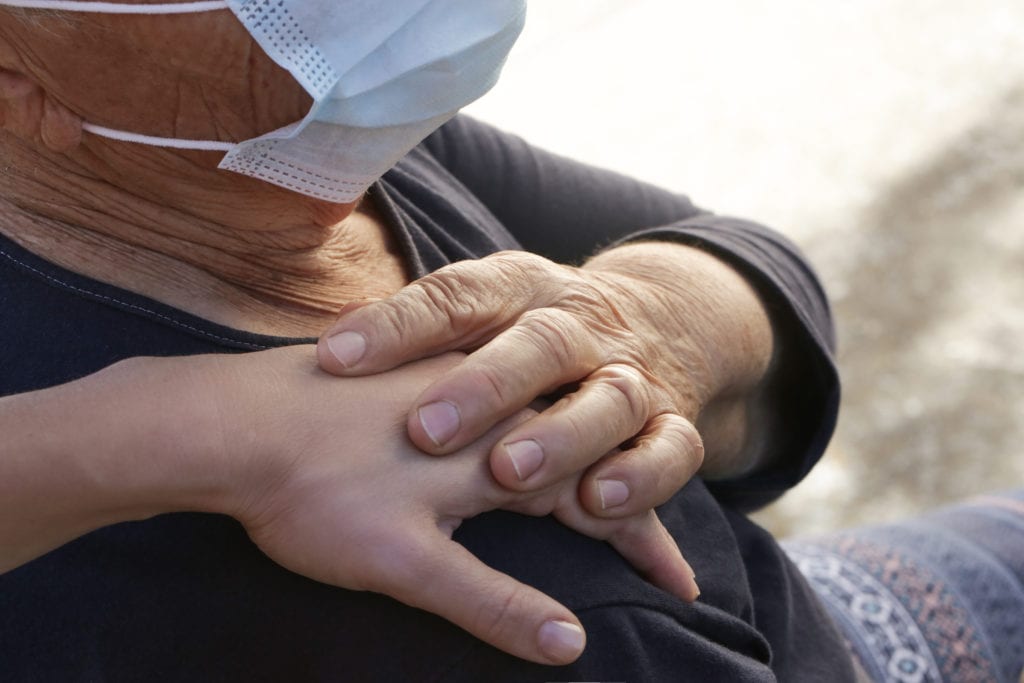Seniors who feel isolated in this pandemic can receive help from November-January through a statewide partnership between the Florida Department of Elder Affairs and the state’s 11 Area Agencies on Aging for a new campaign titled Together Apart: Holidays at Heart.

The Centers for Disease Control (CDC) states that the greatest risk for severe cases of COVID-19 are in people aged 85 years old or older, who are more likely to need hospitalization and stay in the intensive care unit after being exposed to the virus – a deadly risk for this age group. This holiday season, the CDC is asking for those at higher risk not to travel or participate in holiday celebrations as risk of transmission increases. Eight out of every 10 COVID-19 deaths reported in the U.S. have been adults ages 65 and up, according to the CDC.
“The issues with the pandemic go beyond just the risk of infection and transmission of COVID-19. It does have that effect of economic impact and devastating financial situations,” said Karla Radka, Senior Resource Alliance president and CEO. “What is really affecting our seniors, who are the most vulnerable, is the isolation, so they are vulnerable to depression, anxiety, fear, and all of those are byproducts of being separated.”
In Orange, Osceola, Seminole, and Brevard counties, seniors who are lonelier than ever due to the pandemic will be able to receive mental health checks, love notes, and other health resources through the Senior Resource Alliance agency that partners with other local institutions to help those 60 and up.
At the height of the pandemic, the highest number of meals delivered to seniors topped 2,500 meals a day, and so far, the SRA with a restaurant program partnership has distributed over 260,000 meals just in Central Florida, stated Radka.
“The number of callers to our helpline has increased, and the need is great,” she explained.
Seniors who are in the SRA network or those who call the hotline found on the SRA website will receive love notes from Rollins College students, meals for food-insecure seniors, emergency home assistance, living healthy workshops, health insurance assistance, and mental health resources.
“Those calls are to check in on the wellbeing of the seniors, but it’s not a prescribed script; it’s more about that one-on-one relationship,” Radka said. “In those mental health checks, we look for any basic needs they might need to support them[selves], but also, if a senior used to be involved in any activities that brought a lot of joy but, lately, there is no participation – we talk about that current situation.”
Those mental health checks through the Telephone Reassurance helpline are funded by the Department of Elder Affairs and exist to help identify the mental state of the seniors who may not have anyone to check on them. Radka said the calls are also checking in on depression indicators – changes to sleep and eating levels. The public can also call the SRA center if they want a wellbeing check on their elderly neighbor.
“We have heard so many seniors say that our meal delivery driver is the only human being that they see in days,” Radka said.
Nine out of 10 meals the SRA delivers on Christmas Day are to homes of seniors who live alone, according to Radka. These services are offered year-round to seniors, but this year feels especially important to let the seniors know they are not alone and that we are thinking of them, she described.
“The holidays add that extra layer of distinction, from previous holidays when families could get together. There was fellowship; there was that opportunity to celebrate. Because of the pandemic, it adds another layer of isolation,” Radka said.
If the public wants to help the campaign, Radka suggests volunteering, donating blankets to their blanket drive, and writing notes to seniors.


